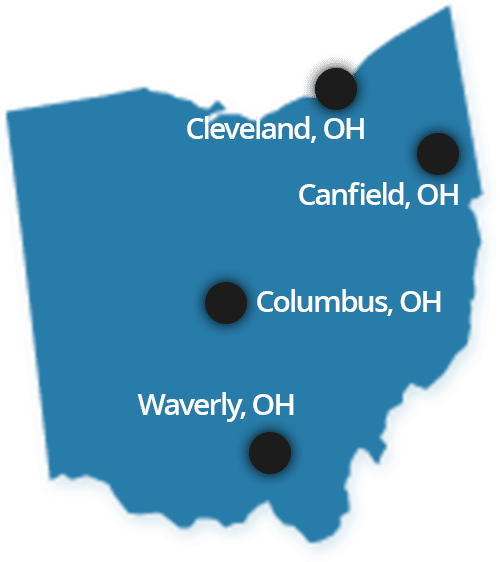Article at a Glance
- Wrongful death as defined by Ohio law is a death that occurs due to another person’s or party’s “wrongful act, neglect, or default.”
- The best way to file a wrongful death lawsuit is to speak with an experienced wrongful death attorney before Ohio’s two-year statute of limitations expires
- Ohio law dictates that only the individual that is named as the personal representative of the deceased individual’s estate may file the action
When a close family member dies suddenly, under certain circumstances, legal action can be brought. This type of action is known as “wrongful death” and is regulated by state laws. Wrongful death laws can vary significantly from state to state, and the following will take a closer look at the specific requirements for this type of claim in Ohio.

If you want more detailed information about how Ohio’s wrongful death laws pertain to your personal situation, you should discuss the matter with the experienced wrongful death attorneys of Plevin & Gallucci.
Ohio Wrongful Death Law
In Ohio, the wrongful death statute creates a cause of action after a death that occurs due to another person’s or party’s “wrongful act, neglect, or default.” The law additionally specifies that wrongful death claims are available if, had the deceased survived, they would have had the right to file a claim for personal injury and recover damages from the liable party. Ohio Revised Code Ch. 2125.
“Wrongful act” often is associated with intentional acts of violence, such as assault, while “neglect” can refer to legal negligence. Negligence happens when someone breaches a legal duty of care and the breach leads to fatal injuries. Some common examples of negligence that can lead to wrongful death actions in Ohio include:
- Drunk driving, aggressive driving, or distracted driving;
- Malpractice of medical professionals, including in Ohio nursing home abuse cases;
- Manufacturing defective or dangerous products;
- Having dangerous conditions on a property.
The law basically states that if an accident victim would have been able to recover for personal injuries due to negligence, then a wrongful death action will be available if they do not survive.
Potential Wrongful Death Settlements and Damages
The damages available in a wrongful death case include compensation for financial losses incurred due to the death, such as medical, funeral, and burial costs. However, Ohio law also allows you to seek damages for additional losses, including the following:
- The estimated income and financial support the deceased would have provided if they had lived;
- The estimated value of the household and child care services the deceased would have contributed to the family;
- The amount by which a prospective inheritance was reduced because of an untimely death;
- Loss of companionship, care, guidance, assistance, protection, attention, instruction, counsel, consortium, advice, education, and training incurred by the surviving family members;
- Mental anguish caused by the death to the surviving family members.
Who Can File a Wrongful Death Lawsuit?
Because the damages sought in a wrongful death case depend largely on the losses of the surviving spouse, children, or other family members, you may assume that these individuals are the ones who will file the wrongful death claim. However, in Ohio, the individual who is named as the personal representative of the deceased individual’s estate is the party that must file the action. The person may either be designated in the deceased individual’s will or may be appointed by the probate court.
Once the amount of damages is determined, the award will then be divided among the family members who have suffered losses due to the death. Such damages will be distributed based on inheritance rights in accordance with the intestate laws of Ohio. Family members generally include a surviving spouse, children, parents, or other dependents of the deceased. Grandparents, siblings, and other relatives are usually not entitled to damages unless they prove they have suffered losses that are legally compensable. ORC Ch. 2105.
If a surviving spouse of the deceased gets remarried in the time period between the death and the resolution of the wrongful death case, they do not necessarily lose out on their portion of the damages, though Ohio wrongful death law dictates that the court may consider such remarriage when determining the losses suffered by that former spouse.
Statute of Limitations for Wrongful Death Claims in Ohio
The Ohio wrongful death statute also sets out a time restriction for filing this type of claim in civil court. The statute of limitations for a wrongful death claim in Ohio is two years from the date the victim died or from the date it was discovered that the death was wrongful. If a claim is filed beyond the two-year time period, the court will almost certainly grant a dismissal of the claim and family members will no longer have the right to seek financial recovery.
Contact an Experienced Wrongful Death Lawyer in Ohio
For this reason, it is imperative to consult with a skilled Cleveland wrongful death attorney as soon as you suspect you may have a case. At Plevin & Gallucci, we’re here to help. Contact us today for a free case evaluation.
See also:

